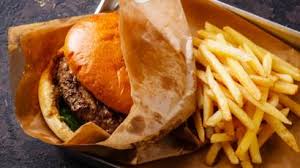Unhealthy diets are ‘slow motion disaster’- BBC NEWS
A national food review calls for wider access to free school meals and warns of misleading packaging.Free school meals should be extended to another 1.5 million children in England, says a government-commissioned review into food and healthy eating.The National Food Strategy warns that the country’s eating habits are a “slow-motion disaster”.The review warns of the toxic connection between child poverty, poor diet and hunger.And it warns of “willfully misleading” packaging which can give a false impression that foods are healthy.The food industry is accused of “clothing itself, and its products, in false virtue” – with the report highlighting the packaging for Percy Pig sweets sold in Marks & Spencer.The report says these sweets are promoted with the claim they have “no artificial colours or artificial flavourings” and to be “soft gums made with fruit juice”.But it asks how any parents check to see that the “three largest ingredients by weight are glucose syrup, sugar and glucose-fructose-syrup”.Report author, Henry Dimbleby, said he was singling out Marks & Spencer “not because it is the biggest sinner” but because it is a “well-trusted company” which pledges to “always strive to do the right thing”. In response, a spokesman for Marks & Spencer said: “All our products have clear labelling so that customers can make informed choices about what they buy.” – and that there was a “range of Percy Pigs with one third less sugar”.The food review from Mr Dimbleby, co-founder of the Leon restaurant chain, takes issue with the language used to sell food.Phrases such as “low fat” might mean “high starch” and labels such as “‘free from’ and ‘less’ are sprinkled around without context,” says the report, which “if not quite lies, are at least willfully misleading”.Mr Dimbleby said some snacks might be “clothed in a veneer of goodness and might not be better for you than a Mars bar”.The negative impacts of unhealthy eating or going hungry are long-lasting and corrosive, says the review, which is claimed as the most significant for decades.”One of the miserable legacies of Covid-19 is likely to be a dramatic increase in unemployment and poverty and therefore hunger,” says the food strategy report.As an immediate intervention, the review calls for many more children to be eligible for a free meal at school, as “only 1% of packed lunches meet the nutritional standards of a school meal”.The review says they should be available to a further 1.5 million children, in addition to the 1.3 million already eligible – so almost one in three children would get free meals.The extension of free school meals, at a cost of £670m per year, would expand eligibility to all children in households where the parent or guardian is claiming universal credit or equivalent benefits.Such a move would aim to stop pupils being hungry at school and prevent the negative consequences for learning and behaviour. Footballer Marcus Rashford recently raised the profile of the importance of school meals during the summer holidays for families who are struggling financially, forcing a U-turn which will see vouchers continuing over the summer break.The food strategy proposes making a long-term commitment to feeding more families over the summer holidays, by making another 1.1 million children in England eligible for the “holiday activity and food programme”, at a cost of £200m per year.Paul Whiteman, leader of the Nation Association of Head Teachers, said there were already too many children who “arrive at school hungry and unable to learn”.”Free school meals at least guarantee that children going hungry at home get one nutritious meal a day,” he said.Biggest risk factor There are serious consequences from a poor diet, says the review, with one in seven deaths in the UK attributable to poor diets.”A nutritionally poor-quality diet is the leading risk factor for ill-health in the UK, yet we do not treat it with the same seriousness afforded to other risk factors. “That has to change,” said Susan Jebb, Oxford University professor of diet and population health, who worked on the report. This is the first part of the review, with the second part next year expected to focus on environmental issues, such as climate change, pollution, sustainable farming and the spread of diseases.Environment Secretary George Eustice said the food industry had “worked round the clock” to keep supplies going through the Covid-19 lockdown.”But we know there is more to do and we will carefully consider this independent report and its recommendations as we emerge from the pandemic and build a stronger food system for the future,” said Mr Eustice.












